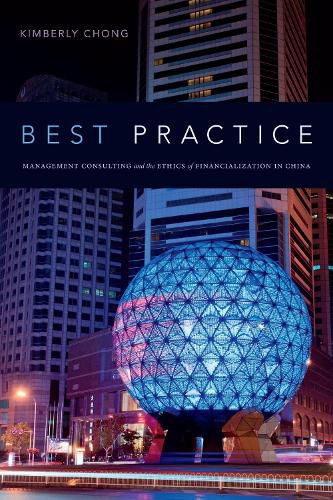Readings Newsletter
Become a Readings Member to make your shopping experience even easier.
Sign in or sign up for free!
You’re not far away from qualifying for FREE standard shipping within Australia
You’ve qualified for FREE standard shipping within Australia
The cart is loading…






In Best Practice Kimberly Chong provides an ethnography of a global management consultancy that has been hired by Chinese companies, including Chinese state-owned enterprises. She shows how consulting emerges as a crucial site for considering how corporate organization, employee performance, business ethics, and labor have been transformed under financialization. To date financialization has been examined using top-down approaches that portray the rise of finance as a new logic of economic accumulation. Best Practice, by contrast, focuses on the everyday practices and narratives through which companies become financialized. Effective management consultants, Chong finds, incorporate local workplace norms and assert their expertise in the particular terms of China’s national project of modernization, while at the same time framing their work in terms of global best practices. Providing insight into how global management consultancies refashion Chinese state-owned enterprises in preparation for stock market flotation, Chong demonstrates both the dynamic, fragmented character of financialization and the ways in which Chinese state capitalism enables this process.
$9.00 standard shipping within Australia
FREE standard shipping within Australia for orders over $100.00
Express & International shipping calculated at checkout
In Best Practice Kimberly Chong provides an ethnography of a global management consultancy that has been hired by Chinese companies, including Chinese state-owned enterprises. She shows how consulting emerges as a crucial site for considering how corporate organization, employee performance, business ethics, and labor have been transformed under financialization. To date financialization has been examined using top-down approaches that portray the rise of finance as a new logic of economic accumulation. Best Practice, by contrast, focuses on the everyday practices and narratives through which companies become financialized. Effective management consultants, Chong finds, incorporate local workplace norms and assert their expertise in the particular terms of China’s national project of modernization, while at the same time framing their work in terms of global best practices. Providing insight into how global management consultancies refashion Chinese state-owned enterprises in preparation for stock market flotation, Chong demonstrates both the dynamic, fragmented character of financialization and the ways in which Chinese state capitalism enables this process.